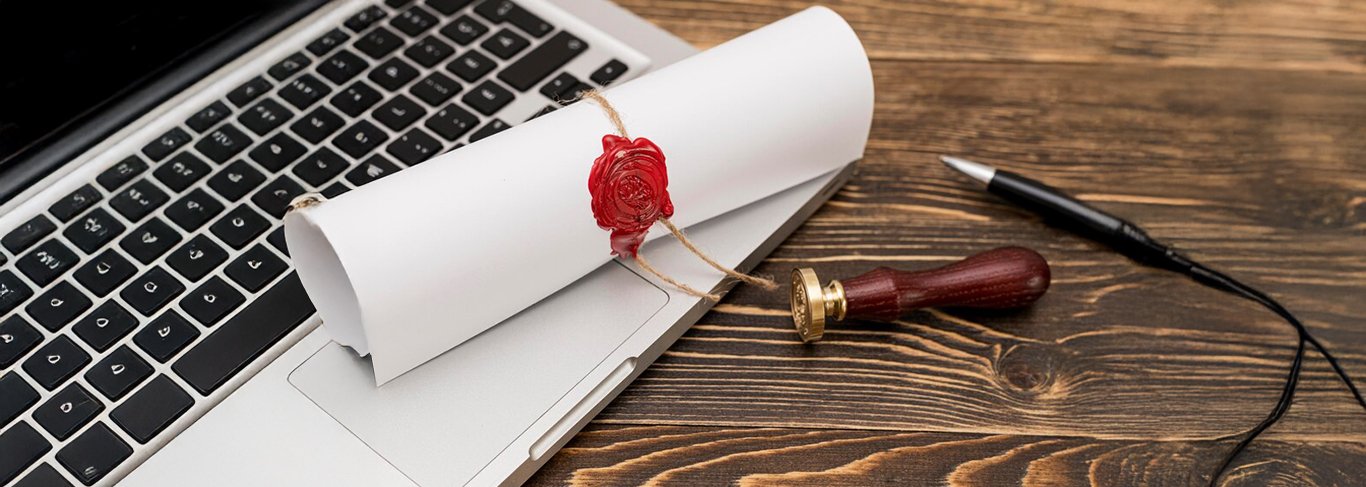- PAN Card (mandatory for transactions involving consideration)
- Aadhaar Card / Passport / Voter ID / Driving Licence
- Passport-size photographs
4 easy steps to Ownership Transfer Deed Registration?
-
Fill up the Form.
-
Submit the documents.
-
Pay only professional fee.
-
Get your Ownership Transfer Deed Registration?
Process of Ownership Transfer Deed
-
Finalise the Mode of Transfer
- Sale – for monetary consideration
- Gift – voluntary transfer without consideration
- Relinquishment – transfer of share between co-owners
- Will / Inheritance – post-death transfer (may require mutation only)
-
Draft the Ownership Transfer Deed
- Prepare the deed in the correct legal format
- Include details of the parties, property description, consideration (if any), and terms
- Choose correct deed type: Sale Deed, Gift Deed, Relinquishment Deed, etc.
-
Pay Stamp Duty
- Calculate stamp duty as per state-specific rates
- Pay through online portal or designated bank
-
Book Appointment at Sub-Registrar
- Schedule a slot online (available in most states)
- Prepare all original documents, ID proofs, and witnesses
-
Execute and Register the Deed
- Visit the Sub-Registrar Office
- Biometric verification and photographs of both parties
- Deed is reviewed and registered on the same day
-
Collect the Registered Deed
- Receive the certified registered copy within 3–7 working days
- Use it for mutation, bank formalities, or further legal processes

Content of Ownership Transfer Deed
Title and Introduction
- Title: “Ownership Transfer Deed” / “Deed of Transfer”
- Date and place of execution
- Names and addresses of the Transferor (Seller/Donor) and Transferee (Buyer/Recipient)
Description of Property
- Full address of the property
- Type of property (residential, commercial, land)
- Area, survey/khasra number, boundaries, and other identifiers
Transfer Details
- Nature of transfer (sale, gift, inheritance, relinquishment, etc.)
- Consideration amount (if applicable)
- Mode and date of payment (if any)
Declaration by Transferor
- Legal right to transfer the property
- Confirmation that the property is free from encumbrances
- Indemnity clause against future claims
Acceptance by Transferee
- Acknowledgment of transfer terms
- Agreement to accept property in its current condition
- Agreement to pay applicable duties, taxes, and registration charges
Possession Clause
- Date and mode of physical possession
- Handover of keys/documents
Covenants and Warranties
- Assurance of clear title
- Agreement to cooperate for mutation and other formalities
- Indemnification for legal defects or encumbrances
Governing Law and Jurisdiction
- Applicable laws (usually Indian Contract Act and Transfer of Property Act)
- Jurisdiction of relevant courts
Witnesses and Signatures
- Signature of both parties (transferor and transferee)
- Signatures of two witnesses with full names and addresses
Documents of Ownership Transfer Deed
Identity Proof of Transferor and Transferee
Proof of Ownership (by Transferor)
- Registered Sale Deed / Gift Deed / Allotment Letter / Will
- Khata Certificate / Mutation Record (if applicable)
- Property Tax Receipt (latest)
Property Documents
- Copy of title deed
- Encumbrance Certificate (to show property is free of legal dues)
- Approved building plan or layout (for constructed property)
- Latest electricity / water bill as address proof
No Objection Certificate (NOC) (if required)
- From housing society / developer / municipal body
- Especially needed in apartments, gated colonies, and leasehold properties
Agreement / Transfer Deed Draft
- Drafted as Sale Deed / Gift Deed / Relinquishment Deed
- To be printed on Non-Judicial Stamp Paper (as per state-specific stamp duty rates)
Payment Proof (if sale involved)
- Receipt or statement showing mode of payment (cheque / RTGS / DD)
- Agreement to Sell (if executed earlier)
Registration of Ownership Transfer Deed
When is Registration Required?
Registration is mandatory in the following cases:
- Sale of property
- Gift of immovable property
- Relinquishment or partition among co-owners
- Transfer through inheritance (optional but recommended for mutation)
Time Required
- Document preparation: 1–2 working days
- Registration & handover: Same day (subject to slot availability)
- Certified copy issuance: 3–7 working days (varies by state)
Required Documents
- Draft Ownership Transfer Deed (Sale/Gift/Relinquishment etc.)
- Identity & Address Proofs of transferor and transferee
- Property ownership documents
- NOC from society or authority (if applicable)
- Payment proof (in case of sale)
- Two witnesses with ID proofs
- Photographs of all parties
- Stamp duty & registration fees paid (varies by state and property value)
Why us
Recognized by Govt. of India
End-to-End Financial & Compliance Solutions
ISO Certified
Data Security & Confidentiality
Trained & Professional Team
On Time, Every Time - We Respect Deadlines
Technology Driven
Transparent & Ethical Practices
Support for Startups & MSMEs
Here are some Frequently Asked Questions about Ownership Transfer Deed
What is an Ownership Transfer Deed?
An Ownership Transfer Deed is a legal document used to transfer the title of a property from one person (transferor) to another (transferee). This may happen through sale, gift, inheritance, relinquishment, or settlement.
Is registration of an Ownership Transfer Deed mandatory?
Yes, registration is mandatory under the Registration Act, 1908 for immovable property to make the transfer legally valid and enforceable.
What are the types of Ownership Transfer Deeds?
Depending on the nature of the transfer, it can be:
- Sale Deed – transfer for consideration
- Gift Deed – voluntary transfer without consideration
- Relinquishment Deed – among co-owners/heirs
- Settlement Deed – distribution within family
- Will & Inheritance – after the death of owner
What documents are required for registration of the deed?
- Draft Ownership Transfer Deed
- PAN & Aadhaar of both parties
- Original Title Deed of property
- Property Tax Receipt / Utility Bill
- NOC from society (if applicable)
- Two witnesses with ID proofs
- Stamp duty and registration fee receipt
Who pays the stamp duty and registration charges?
Usually, the transferee (buyer or beneficiary) pays the stamp duty and registration fees unless agreed otherwise. Rates vary by state and type of transfer (lower for family gifts or inheritance).
What happens after the deed is registered?
- The transferee becomes the legal owner
- You can apply for mutation of property in municipal records
- The new owner can update utility connections and tax records
Leave Your Accounting to Us and File GST Accurately.
Save time, money, and taxes with our AI based Business softwares and expert accountants.
















